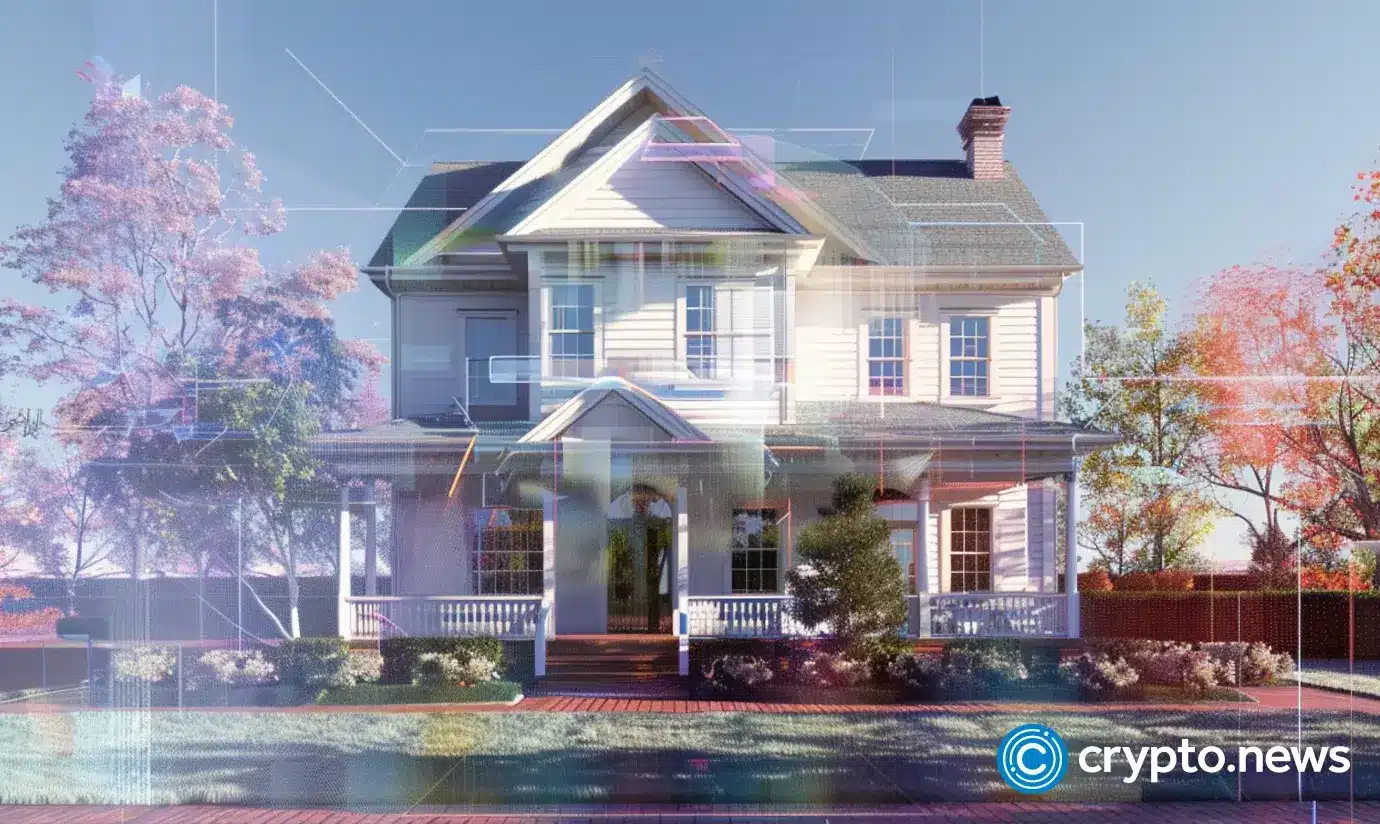[ad_1]
Disclosure: The views and opinions expressed here belong solely to the author and do not represent the views and opinions of crypto.news’ editorial.
The dream of owning a home remains a cornerstone of the American Dream, symbolizing stability, security, progress, and success. However, for young millennials and Generation Z, this aspiration has evolved to feel like an unattainable fantasy overshadowed by the stark reality of excessive costs, predatory fees, and a labyrinthine system riddled with opaque practices and potential for exploitation. But, there is a solution brewing in the web3 movement.
The traditional path to homeownership is fraught with barriers disproportionately affecting younger generations. Predatory fees, inflation, high interest rates, broker commissions, and a general lack of transparency amount to a daunting financial burden, exacerbating the already formidable challenge of saving for a down payment.
The issue of potential fraud, corporate competition, and monopolies on the market looms large as well, casting doubt on the integrity of real estate transactions and further eroding trust in the system.
For many young people, the prospect of navigating this convoluted landscape is overwhelming. As a result, homeownership rates among millennials and Gen Z have plummeted compared to previous generations, widening the chasm of economic inequality and perpetuating a cycle of financial disenfranchisement.
Recent legal reckoning in real estate has become pivotal. The National Association of Realtors (NAR) reached a significant $418 million settlement in a class action accusing the industry of artificially inflating real estate commissions—a clear violation of antitrust laws. This lawsuit has highlighted the dire need for transparency and the reduction of redundant fees, paving the way for innovative solutions like tokenization.
At its core, tokenization refers to the process of converting an asset into digital tokens on a blockchain. In the realm of real estate, this approach has the potential to disrupt the way properties are bought, sold, and financed.
The elimination of intermediaries such as brokers and intermediaries reduces overhead costs, resulting in lower fees and transactional expenses. Additionally, by leveraging blockchain technology, transactions become more transparent, secure, and efficient, minimizing the risk of fraud and enhancing trust between buyers and sellers.
Tokenization reduces overhead costs by eliminating intermediaries such as brokers, making transactions more transparent, secure, and efficient. It also allows for fractional ownership, enabling more people to invest in real estate with smaller upfront capital.
The impact of tokenization is not limited to niche markets; it’s a trend gaining momentum across the broader financial landscape. For example, BlackRock’s entry into the tokenized asset space with its first tokenized Treasury fund—which saw its value swell from $100 million to nearly $1.3 billion in a short span—demonstrates the growing confidence and interest in using blockchain for traditional assets. This monumental growth signifies how tokenization can bring about faster settlements, increased transparency, and operational efficiencies.
Just as tokenization has begun to revolutionize the Treasury market, it holds similar potential for real estate, promising to make property investment more accessible and aligned with modern financial practices.
Unlocking liquidity in previously illiquid assets will help property owners access their holdings’ value without the need for a traditional sale. Platforms that facilitate peer-to-peer trading of real estate tokens will allow owners to monetize their properties on their own terms, whether through fractional sales, leasing arrangements, or other novel mechanisms. This unprecedented liquidity will inject a newfound dynamism into the real estate market, enhancing its resilience and adaptability in the face of economic fluctuations.
Perhaps most importantly, tokenizing real estate can democratize access to investment opportunities, leveling the playing field and empowering individuals from all walks of life to build wealth through property ownership. By breaking through entry barriers and fostering a more inclusive ecosystem, tokenization paves the way for a more equitable and accessible housing market.
While the potential of tokenizing real estate is immense, its widespread adoption hinges upon overcoming regulatory hurdles, technological challenges, and entrenched interests resistant to change. Policymakers must proactively engage with stakeholders to develop a regulatory framework that balances innovation with consumer protection, ensuring that tokenized assets adhere to rigorous standards of transparency, security, and compliance.
Tokenizing real estate represents a transformative opportunity to reinvent the way we buy, sell, and invest in property. By utilizing the capacity of blockchain technology, the barriers that have long hindered access to homeownership can be dismantled, creating a more affordable, transparent, and inclusive housing market for generations to come.
[ad_2]
Read More: crypto.news










 Bitcoin
Bitcoin  Ethereum
Ethereum  Tether
Tether  XRP
XRP  Solana
Solana  USDC
USDC  TRON
TRON  Dogecoin
Dogecoin  Lido Staked Ether
Lido Staked Ether  Cardano
Cardano  Wrapped Bitcoin
Wrapped Bitcoin  Hyperliquid
Hyperliquid  Wrapped stETH
Wrapped stETH  Bitcoin Cash
Bitcoin Cash  LEO Token
LEO Token  Sui
Sui  Chainlink
Chainlink  Stellar
Stellar  USDS
USDS  WhiteBIT Coin
WhiteBIT Coin  Avalanche
Avalanche  Toncoin
Toncoin  Binance Bridged USDT (BNB Smart Chain)
Binance Bridged USDT (BNB Smart Chain)  Shiba Inu
Shiba Inu  Litecoin
Litecoin  WETH
WETH  Wrapped eETH
Wrapped eETH  Hedera
Hedera  Ethena USDe
Ethena USDe  Monero
Monero  Polkadot
Polkadot  Bitget Token
Bitget Token  Coinbase Wrapped BTC
Coinbase Wrapped BTC  Pi Network
Pi Network  Uniswap
Uniswap  Pepe
Pepe  Dai
Dai  Aave
Aave  Ethena Staked USDe
Ethena Staked USDe  OKB
OKB  BlackRock USD Institutional Digital Liquidity Fund
BlackRock USD Institutional Digital Liquidity Fund  Bittensor
Bittensor  sUSDS
sUSDS  Aptos
Aptos  Cronos
Cronos  Internet Computer
Internet Computer  Jito Staked SOL
Jito Staked SOL  NEAR Protocol
NEAR Protocol  Ethereum Classic
Ethereum Classic